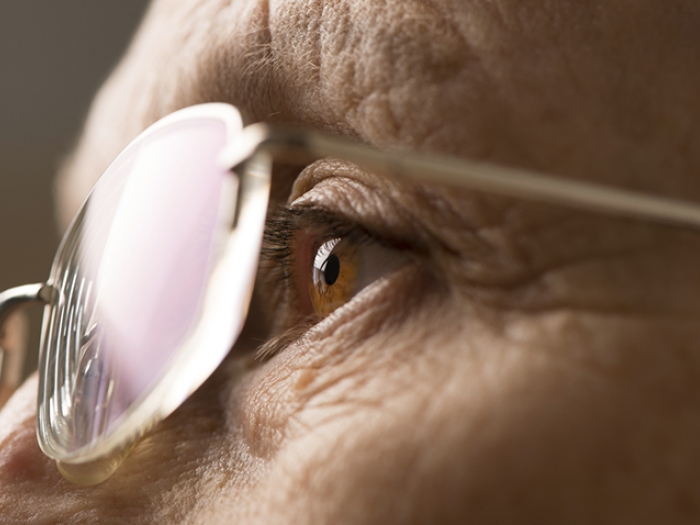
Health Lab
Dry macular degeneration occurs when cells of the macula begin to thin and break down. It is characterized by drusen buildup and typically worsens over time. Wet macular degeneration happens when abnormal blood vessels grow in the back of the eye.

Health Lab
One of the lesser-known consequences of osteogenesis imperfecta – brittle bone disease – is an increased risk of eye diseases like glaucoma. Patients of all ages should receive annual ophthalmic screenings.
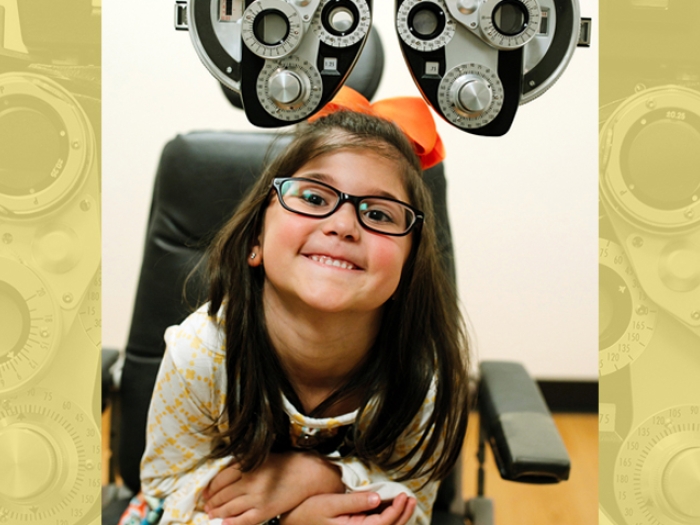
Health Lab
: Advances in gene therapy are yielding new options for treating inherited retinal degenerations, giving retina specialists new tools — and new hope for patients and families.
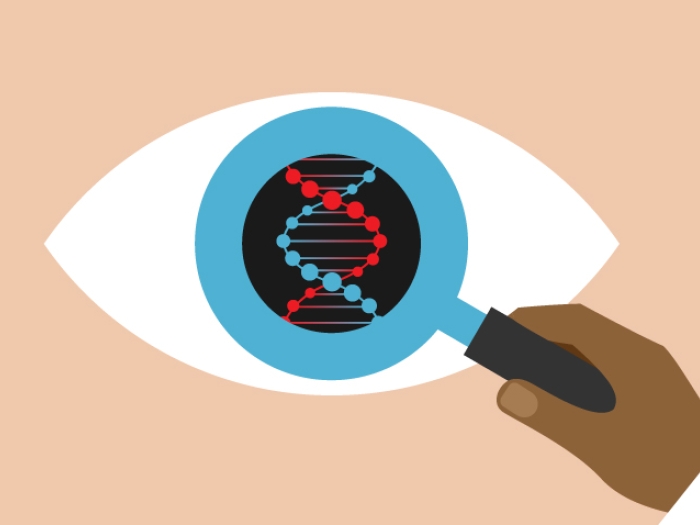
Health Lab
Trained to interpret variations in your DNA, these specialists can help confirm a vision-related diagnosis and guide family members in gauging their own risk.

Health Lab
AMD affects the eyesight of millions. A Michigan Medicine specialist offers easy ways to help slow or prevent the disease.
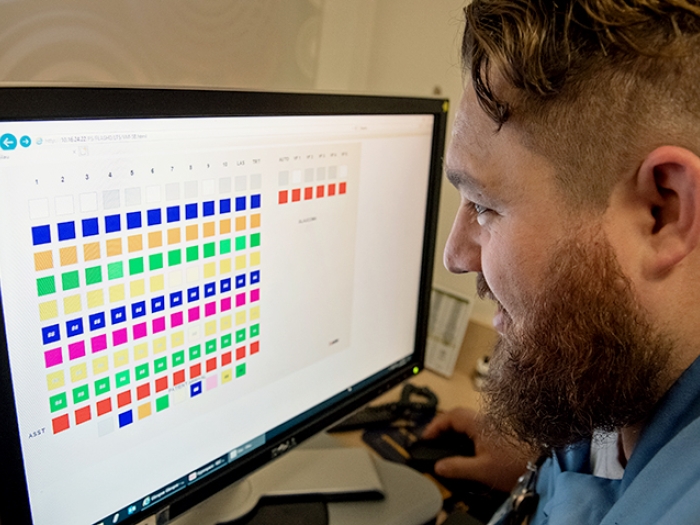
Health Lab
A popular type of data collection is helping Kellogg providers make visits more meaningful for patients and reduce wait times.
News Release
Patients can now receive eye surgery and other ophthalmology care close to home at the University of Michigan Kellogg Eye Center’s new state-of-the-art clinic in Brighton.

Health Lab
In rare occurrences, forceful manipulation of the neck is linked to a damaging side effect: vision problems and bleeding inside the eye.

Health Lab
Technology can enrich the lives of those with low vision but a Michigan Medicineresearcher says a policy change might address racial disparities in use of the devices
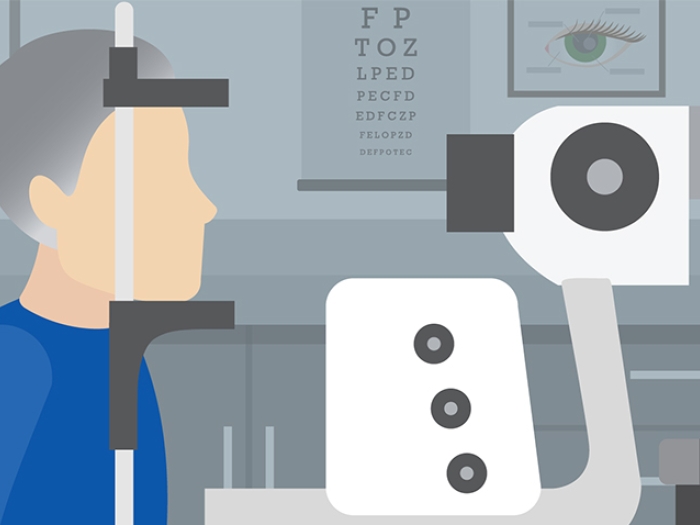
Health Lab
Focusing on those with the highest risk of vision problems — as well as sensitivity to costs — could help improve eye care decisions for people over 50, a new poll finds.

Health Lab
A fishing accident could have robbed a young boy of sight in his left eye. His vision was restored thanks to a donated cornea and transplant surgery at Michigan Medicine.

Health Lab
The national health insurance program leaves many older Americans without adequate resources to properly maintain their sight, a new study finds.
Health Lab
To combat growing eye problems and treatment disparities in communities of color, a U-M effort works to foster a more diverse group of eye care providers.
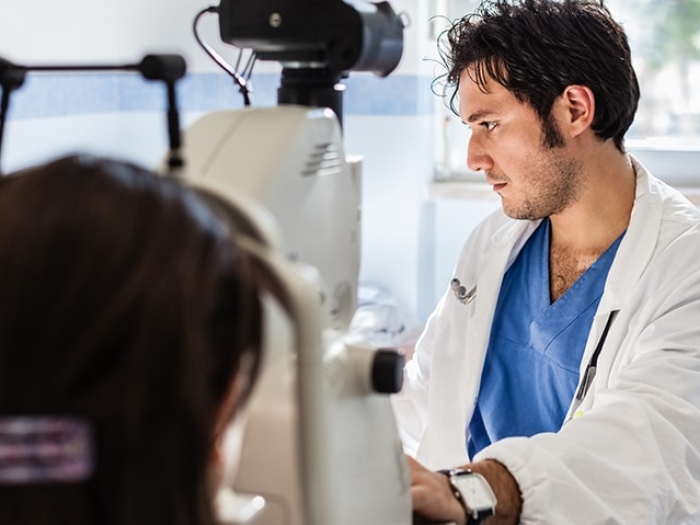
Health Lab
Immunotherapy cancer drugs can cause a potentially vision-robbing side effect. In a new report, Michigan Medicine experts discuss the risks and what oncologists should know.
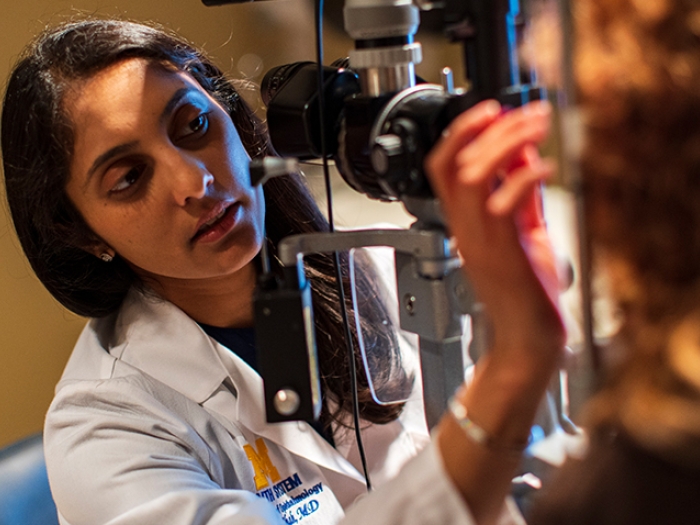
Health Lab
Medication for diabetic eye disease is crucial, but it’s hard to tell in advance when and how often patients might need it. New research aims to provide insight.